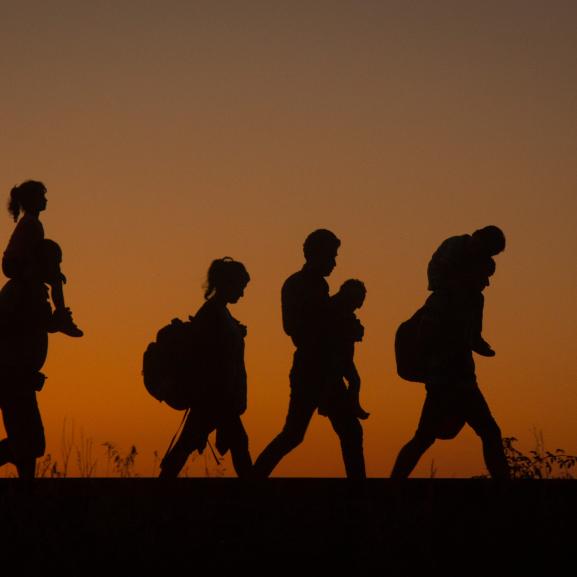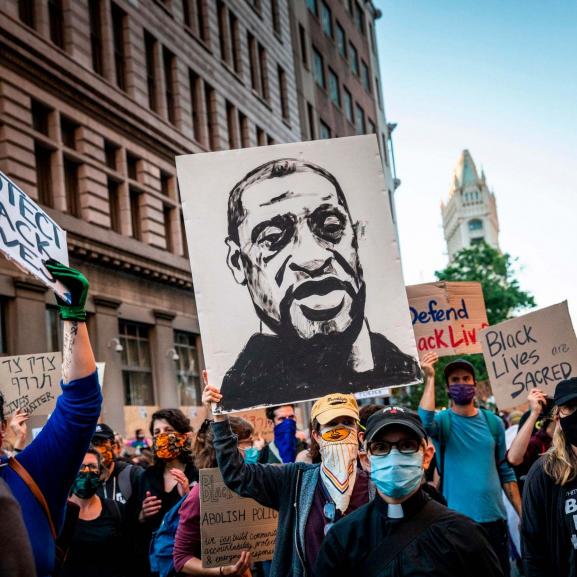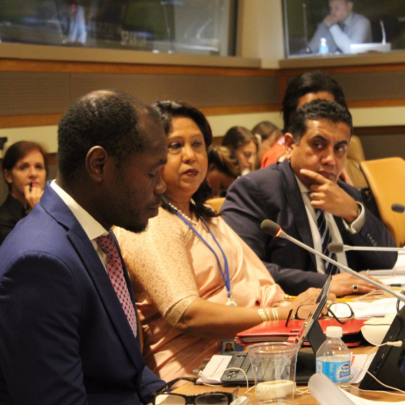Torture survivor talks about how poverty hinders recovery
Louise Wellington, from Freedom from Torture's Newcastle Local Supporters Group, writes about an event she organised in the city.
I started planning for this event in February and was excited about Survivors Speak OUT's, the UK's only torture survivor led activist network, involvement in our talk. Our group was hosting an event at Newcastle University discussing the impact of poverty on a torture survivor's recovery (based on a new Freedom from Torture report due out in July). It was the first event our group had organised at the university.
Everything ran smoothly and we had a great panel. It started with an introduction about Freedom from Torture from Alan Brice, Newcastle centre manager, and then four interesting and informative speakers followed including Jackson, from Survivors Speak OUT.
Jackson spoke eloquently and movingly about his first-hand experience of poverty as an asylum seeker and subsequent destitution after being refused protection. After an 11 year struggle he now has been granted refugee status and therefore protection in the UK.
A first-hand account is always powerful and when Jackson told us of twice having to live behind wheelie-bins in pub car parks and scavenging for food scraps it put flesh onto the bones of words like 'destitution'. It must have been hard for him to share those experiences but he said it was important for him to tell people about the reality of life that he and others have experienced. I guess that is why he is part of the Survivors Speak OUT network.
Tony Wright, a Freedom from Torture counsellor, spoke about how poverty affected people – depression, isolation and low self-esteem. He told the audience about a 15-year-old survivor of torture who had been forced to live in a park – cold, hungry, isolated and unkempt (despite efforts to appear otherwise).
Then Dr Shirley Warrington told us about the very limited access to healthcare for refused asylum seekers, how poor nutrition and hygiene together with sub-standard accommodation (or lack of it), affected people's physical and mental health.
Lindsay Cross, director of the West End Refugee Service in Newcastle, told us how her organisation uses its Hardship Fund to help people. She "felt bad" that they could only afford to give each client (refused asylum seekers) £15 a week when they are so desperate – that is just over £2 a day – can you imagine having to survive on that? I can't.
After the panel had spoken the audience joined in a discussion with the speakers which was thought provoking and insightful.
Everyone on the panel had so much knowledge, including actual experience, which meant we were talking about people rather than statistics. It made the subject come alive and I am very glad to have been part of it.
The Poverty Barrier, Freedom from Torture's forthcoming report into the impact of poverty on survivors of torture living in the UK, will be available in mid July. Email [email protected] for a copy.






